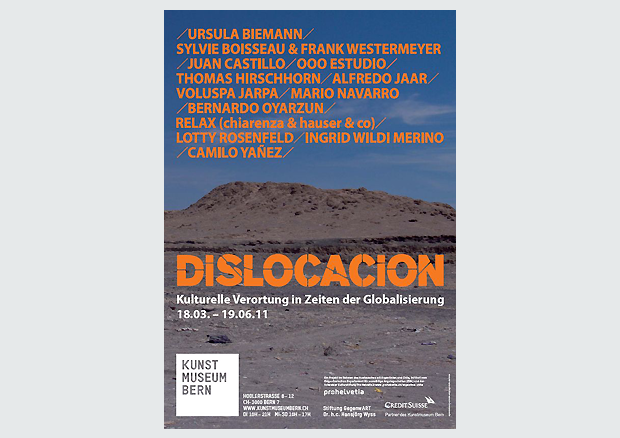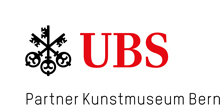DISLOCACIÓN. Cultural Location and Identity in Times of Globalization, March 18 – June 19, 2011
Chile is everywhere
On the occasion of the bicentenary of Chile’s independence, the Swiss Embassy in Santiago invited the Swiss-Chilean artist Ingrid Wildi Merino to conceive and organize an exhibition. Pro Helvetia, together with other foundations and institutions, made this exemplary cultural-exchange project possible. It was already on view in 2010 in Santiago de Chile, and now is being presented in the Kunstmuseum Bern. The works on show were made especially for the exhibition, created by 14 artists from both Chile and Switzerland. The outcome is an artists’ research project that traces globalization’s worldwide impact as well as its historical origins.
The artists were invited address the subject of "dislocación" in respect to Chile, and analyze through art the general circumstances of life in
times of globalization. Twenty years after Augusto Pinochet’s
dictatorship came to an end, these artists engage with the issues of its legacy as well as with the growing corruption accompanying Chile’s
neoliberal economic policies, and the latter’s influence on people’s
everyday existence.
Chile - Switzerland: An artists’ research project
The title of the exhibition “Dislocación” refers to displacement,
misplacement, and can also mean dislocation in the medical sense. It
alludes to “dispersed” or “disjointed” communities – or to the course of social life being disrupted in some way – as a result of neoliberal
economic policies. As the driving force behind globalization,
neoliberalism destroys local markets, resulting in migration processes
among other repercussions. People worldwide are forced to be mobile,
flexible, and adaptable due to political and economic developments. They are compelled to go where they are needed in search of better economic
and social opportunities to secure an existence. Migration is based on
the loss of original material livelihood, ruin of social structures, and calls existing cultural identities into question. The participating
artists investigate living conditions of the individual in a globalized
world. For years they have already been collecting “data” – in the form
of interviews, video essays, and photographs – that they now have
incorporated into their artworks in some form or other. In them they
open up new paths of cognition to the beholder. They palpably represent
phenomena we can observe all over the world: Displacement and
homelessness, the problems of insufficient integra-tion, banishing
marginal groups, lack of housing, unemployment, and a feeling of
hopelessness. But it also grows apparent that each and every one of us
must learn to deal with the challenges posed by globalization.
With the support of Pro Helvetia
"Dislocación" was made possible by the Swiss cultural foundation Pro
Helvetia together with other foundations and institutions. As an
exemplary project of exchange and research, it was first shown in
Santiago de Chile and will now be on exhibition in Bern – two locations
with diverging cultural and political backgrounds. The exhibition in
Bern will be accompanied by a daylong symposium on March 20 with the
participating artists and authors who contributed to the catalogue. A
series of talks has also been organized, and additionally related films
will be showing in the Kino Kunstmuseum.
With works by:
Ursula Biemann, Sylvie Boisseau & Frank Westermeyer, Juan Castillo,
Thomas Hirschhorn, Alfredo Jaar, Voluspa Jarpa, Mario Navarro, Bernardo
Oyarzún, RELAX (chiarenza & hauser & co), 000Estudio, Lotty
Rosenfeld, Ingrid Wildi Merino, Camilo Yáñez


